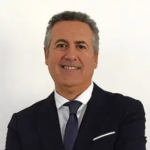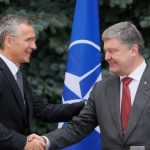A populist government will be sworn into power in Italy on Friday after president Sergio Mattarella agreed to a revised slate of ministers – just days after a bitter row over the incoming leaders’ stance on the euro ended their initial bid to assume power.
A joint statement by the anti-establishment Five Star Movement (M5S) and the far-right League announced that political newcomer Giuseppe Conte, who had been seen as a controversial choice, would serve as prime minister. The relatively unknown law professor met Mattarella late on Thursday night to put forward a list of ministers, which the president has accepted.
“All the conditions have been fulfilled for a political, Five Star and League government,” said Luigi Di Maio, the Five Star chief, and Matteo Salvini, the League leader, in a joint statement after a day of talks in Rome.
The deal will bring at least temporary calm to a political crisis that has embroiled Italy for weeks. The tumult raised questions – in Brussels and among investors around the world – about whether the rise in Italian populism and the collapse of traditional parties posed a fundamental threat to the country’s future in the eurozone.
The formation of the new government will at least temporarily allay those concerns, because it will remove for now the threat that snap elections will be called later this summer, a prospect which worried investors because it could have bolstered support for anti-EU parties.
The populist leaders stepped back from their insistence that Paolo Savona, an 81-year-old Eurosceptic, should serve as finance minister. The choice had been vetoed by Mattarella, prompting the M5S and the League to call off their deal. Savona will now serve as EU minister instead.
But there are still many unknowns about how the new administration – an uneasy alliance between two former political opponents, both jockeying for power – will govern Italy.
Salvini, the bombastic and xenophobic leader of the League , who rose in recent years on the back of incendiary and racist statements about migrants and Roma, will take on the role of interior minister. Salvini has campaigned on the promise of mass deportations of migrants and said a new government would build detention centres around Italy. He is also a fierce critic of Brussels and has called for closer ties to Russia.
Di Maio will take on a powerful new post that will combine labour and industry portfolios in a move that could mark big changes to labour and environmental policies, given the M5S’s stated opposition to big industry.
Giovanni Tria, a little known economics professor, was named to lead the finance ministry. While Tria has been critical of the EU, he is not been seen as an advocate for an exit from the eurozone.
The new deal was blessed by Mattarella, who earlier this week nominated a technocrat, Carlo Cottarelli, to serve as prime minister. Those plans were put on hold after Mattarella opted to give the populists more time to reach a new agreement.
The new government is expected to take a far more antagonistic stance against Brussels than the previous government, headed by the centre-left Democratic party. But the alliance between the M5S and the League will have only a relatively narrow majority in the Italian senate, easing concerns among investors and officials in Brussels over the new government’s decision-making.
While both parties are populist in nature, and have railed against Brussels and Italian “elites”, they have long been natural opponents in politics.
Wolfango Piccoli, the co-president of Teneo Intelligence in London, said: “They are both led by young and ambitious leaders who share prime-ministerial ambitions. Due to mutual distrust, it has taken both parties over 70 days to reach a deal and choose an unknown third figure as prime minister.”
Their shared agenda includes plans to cut taxes, scrap a previously agreed pension plan and institute a “universal basic income”.
While many officials in Brussels sought to ease tensions with Rome this week, and backed Mattarella after the president took a political risk by defending Italy’s role in the EU, Jean-Claude Juncker, the president of the European commission, issued a tough critique of Italy on Thursday. He said Italians needed to work harder, be less corrupt and stop looking to the EU to rescue the country’s poor regions.
“Italians have to take care of the poor regions of Italy. That means more work, less corruption, seriousness,” Juncker said. “We will help them as we always did. But don’t play this game of loading with responsibility the EU. A country is a country, a nation is a nation. Countries first, Europe second.”
source:https://www.theguardian.com/world/2018/may/31/italys-populist-leaders-strike-deal-resurrect-coalition






















































